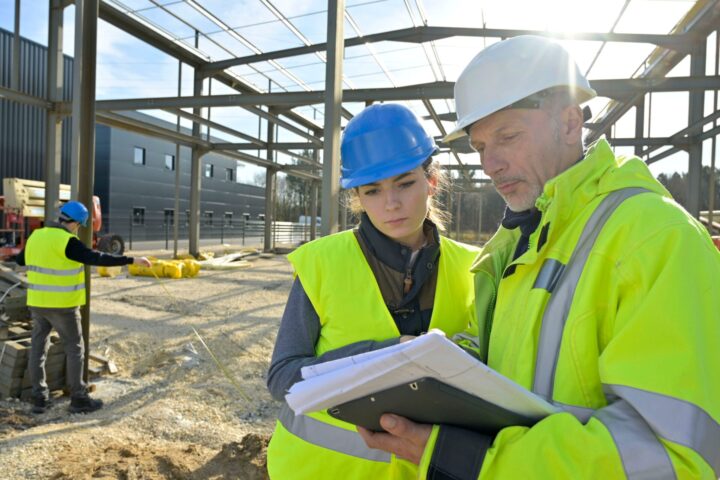Construction skills shortages and rising costs may still bring delays and higher costs for homeowners, according to a small and medium-sized enterprise (SME) State of Trade Survey from the Federation of Master Builders (FMB) and the Chartered Institute of Building (CIOB).
The report found that workloads, enquiries and employment in the construction sector picked up in early 2025, but homeowners are still facing longer wait times, higher prices, and even cancelled jobs.
The survey showed that 33% of firms found it hardest to recruit carpenters, with 32% struggling with roofers and 28% with plumbers and HVAC specialists.
Skill gaps were also a problem, with 64% of firms unable to find workers with building safety knowledge and 59% struggling to find staff with sustainable building and new tech skills.
61% of firms said they had been affected by these shortages, leading to job delays for 49% and cancellations for 23%.
38% of firms experiencing delays blamed the planning process, which is a particular issue for small builders.
Material and wage costs are still going up, with 75% of builders reporting higher material prices and 67% saying wages have risen.
61% of firms have increased their prices as a result.
The research also found net workload up by 25%, reversing declines seen at the end of 2024.
Enquiries rose by 34% and employment change was up 26%, the strongest rise since 2010.
All regions saw growth, with Northern Ireland reporting workloads up 36% and enquiries up 64%. Scotland, Wales and England also posted increases.
Additionally, 39% of firms said they had increased their workforce, while only 13% reported a decrease.
Just over half (51%) of firms had a positive outlook for the second half of 2025.
Brian Berry, CEO of the FMB, said: “It’s encouraging to see the construction sector getting back on its feet, with builders busier and more confident than they’ve been in months.
“House building and home improvement are leading the way, and many firms are expanding their teams to meet demand.
“But the reality is that many homeowners could still face delays or higher costs.”
Berry added: “Builders are finding it harder than ever to recruit skilled workers and rising prices for materials and wages are putting pressure on businesses.
“These challenges are slowing down delivery and making it harder for firms to take on new work.
“If skills shortages and planning delays aren’t addressed there is a risk that the economic recovery will be slowed down and housing targets won’t be delivered.”
He said: “The industry is ready to build, but it needs support to do so.
“Without it, homeowners may be left waiting, and the UK could fall further behind on the homes that are urgently needed.
“Action is needed to ensure that the recovery is not just short-lived but sustainable, and that builders have the tools they need to keep Britain building.”
Paul Gandy, president at the CIOB, said: “The issue of skills shortages is one the industry knows all too well, and it continues to create real challenges – for those doing the building, and for the public who face delays and rising costs as a result.
“With more people now choosing to improve their homes rather than move, it is vital for families and the wider economy that they can access reliable, competent builders delivering high-quality, affordable work.
“SMEs are the backbone of our industry, yet too often they are held back by issues such as late payments, and barriers to taking on apprentices.”
Gandy added: “If we want a strong, sustainable pipeline of skilled workers, we need to make it easier and more affordable for SMEs to train the next generation.
“More apprenticeship places and homebuilding skills hubs are welcome steps forward, but we would like to see more done to inspire young people to pursue a career in construction – whether through better in-school careers advice or a dedicated built environment GCSE.
“The insights from this State of Trade survey are vital in helping us make that case to Government.”

















